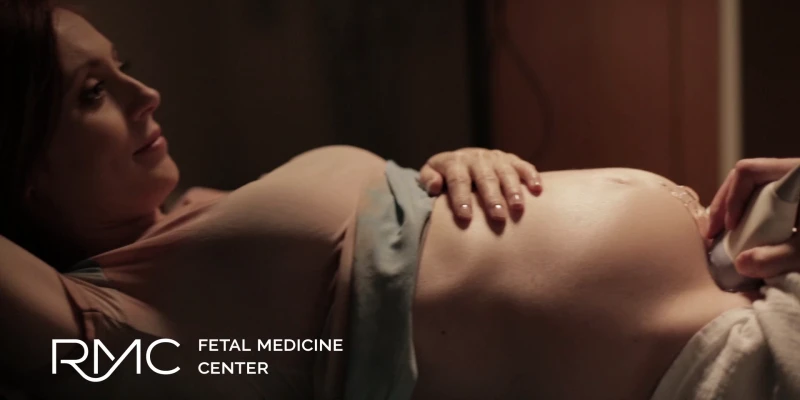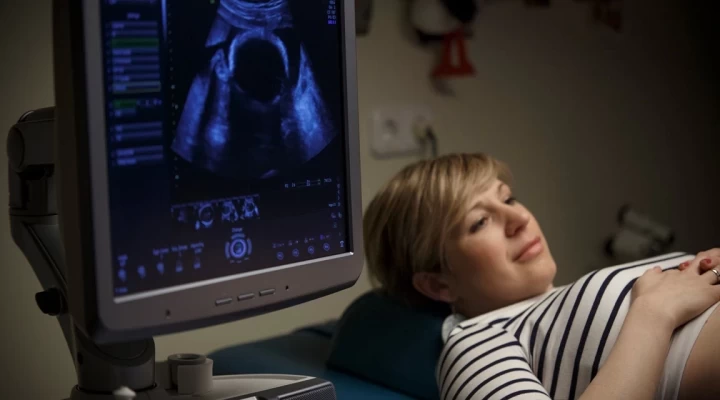Our institution is a center offering international-standard, full-range fetal screening and diagnostic services, which in addition to high-resolution, general ultrasound tests, provides expectant mothers and their treating physicians with special cardiovascular screening, DNA and chromosomal tests, as well as genetic counseling.
We offer comprehensive fetal screening tests at three times, in the 12th week, the 20th week and the 30th week. The three exams together provide the expectant parents with the most thorough anatomical, genetic, and fetal status screening. The exams are conducted by doctors trained and registered by the FMF (Fetal Medicine Foundation London), whose activities are monitored and audited by the organization annually.
What makes our fetal medicine services unique?
-
Our FMF (Fetal Medicine Foundation London) accredited specialist conducts the examinations.
-
We work with professional ultrasound equipment.
- We conduct the test without any time limit, for several hours, if necessary (depending on how the fetus is positioned and the visibility conditions).
- One of our specialties is that we examine the fetal heart as part of the routine screening already in the 12th week.
- We operate as a national reference center: specialists in charge of obstetric care refer their patients to us specifically for these tests.
- In the case of abnormal results from a screening test, we provide a second opinion, which often makes risky invasive procedures unnecessary.
Which tests are necessary?
In the past, expectant mothers over the age of 35 were automatically offered invasive fetal chromosome testing that carries a 1% risk of miscarriage as part of their pre-natal care. Today, however, there are methods that are significantly more reliable than determining risk based on maternal age.
- The first trimester extended screening test, which consists of a blood test and an ultrasound exam, is recommended for every expectant mother. If this examination shows that the risk is low, then we recommend that the next tests be the 20th week, followed by the 30th week screening tests. If the risk is high, then further tests are necessary.
- If the results of the first trimester extended screening test show a high risk (> 1/150), Non-invasive prenatal tests (NIPT) is recommended as an alternative to chorionic villus sampling, which carries a risk of miscarriage. PrenaTest® is done from the mother’s blood, which makes is completely safe for the pregnancy. NIPT is also recommended if any other risk estimate (e.g. maternal age, quad screen etc.) shows a high risk and the expectant mother has not undergone more high-efficiency traditional screening tests (e.g. combined-extended screening) for a more precise risk assessment. Of course, parents can request the test without any medical reason, but only following the ultrasound exam, because NIPT does not replace the ultrasound exam, as several disorders and problems that cannot be detected with this test can be detected using ultrasound.
- After a positive NIPT result, or at the request of a high-risk expectant mother, or with other genetic indications, an invasive test (chorionic villus sampling or amniocentesis) is recommended.
Any questions before booking an appointment?
If you are unsure which doctor to see or what examination you require, we are here to help!
Simply request a free callback from one of our colleagues, who will help you find the right specialist based on your specific issue.






Reviews